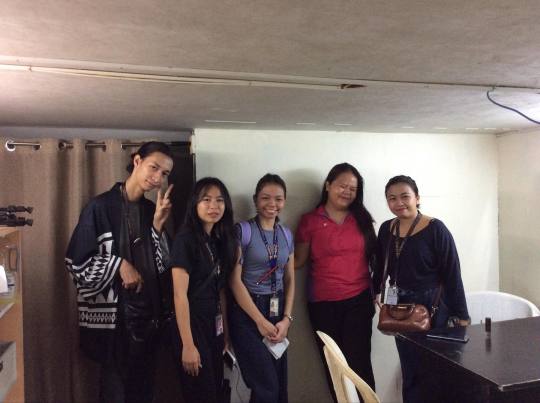Don't wanna be here? Send us removal request.
Text
Blog#2 Market Sizing
Market sizing refers to the process of estimating the total potential market demand for a product, service, or solution. It provides an understanding of the overall market opportunity in terms of revenue, number of potential customers, or units sold. Market sizing is crucial for businesses to evaluate the feasibility of launching a product, entering a new market, or expanding operations.
Market sizing typically involves:
Total Addressable Market (TAM): The total revenue opportunity if a product or service were to capture 100% of the market.
Serviceable Addressable Market (SAM): The portion of the TAM that a company can realistically target, considering its business model, resources, and capabilities.
Serviceable Obtainable Market (SOM): The segment of the SAM that a company expects to capture within a specific timeframe, based on competition, strategies, and capacity.

Summary:
TAM: Php 360 million (total potential market for all college students and part-time workers in the Philippines)
SAM: Php 22 million (focused on USTP students and part-time workers)
SOM: Php 2.2 million (realistic short-term capture goal)
Conclusion
With a student population of 20,000 at USTP, the market sizing analysis indicates a significant revenue opportunity for QuestBoard. By focusing on this specific demographic and leveraging its unique features tailored to students and part-time workers, QuestBoard can strategically position itself to capture a meaningful share of this growing market while expanding its presence over time.
0 notes
Text
Blog 3 - Competitive Analysis
Competitive Analysis Summary
Competitive analysis is a methodical approach businesses use to examine their competitors’ strengths, weaknesses, strategies, and market positioning. This process provides insights into the competitive environment and guides strategic decision-making.
About QuestBoard App QuestBoard, developed by a team of third-year IT students at the University of Science and Technology of Southern Philippines (USTP), offers a platform for “Quest-Givers” to post small tasks or “quests” that “Quest-Takers” can complete for monetary rewards. The app fosters productivity within the USTP community and provides a stress-free avenue for financial support. Flexible arrangements, as noted by McKinsey (2023), appeal to the growing number of workers seeking independent earning opportunities.
Designed for students and part-time workers, QuestBoard accommodates users with limited availability for full-time jobs. By enabling short-term tasks, the app offers financial relief and encourages collaboration within the community.
Competitive Landscape The competitive landscape for QuestBoard consists of direct and indirect competitors:
Direct Competitors
Thumbtack: Links users with professionals for various tasks, from home repairs to event planning.
Gigspot: Connects users with local gig work, promoting flexibility.
TaskRabbit: Offers assistance with tasks like cleaning, moving, and home maintenance.
Fiverr: Online marketplace for hiring freelancers for specific services such as graphic design and programming.
Upwork: Freelancing platform focused on project-based work.
Indirect Competitors
Freelance Platforms : Primarily support long-term projects and professional services.
Online Learning Platforms : Offer skill-building resources that indirectly enable earning opportunities.
Crowdsourcing Platforms : Focus on microtasks, often unrelated to community-driven quests.
Social Media Platforms: Monetize content creation through partnerships and sponsorships.
QuestBoard's Unique Features QuestBoard differentiates itself through features tailored for its target audience:
Quest Ranking System: Tasks are ranked from S (highest) to F (lowest), aiding users in assessing task difficulty.
Tiered Plans: Flexible subscription options.
In-App Messaging and Progress Tracking: Enhances user experience and engagement.
Skill Development Opportunities: Focuses on fostering skills while earning.
Transparent Fee Structure: Simplifies transactions for users.
Findings
QuestBoard excels in user engagement due to its unique features but has limited market presence as an emerging platform.
Established platforms like TaskRabbit score high in both user engagement and market presence.
Thumbtack, Fiverr, and Upwork are recognized brands with varying engagement levels.
Gigspot occupies a mid-range position in both attributes.
Key Insights
Unique Value Proposition: High user engagement features cater to USTP students and part-time workers, emphasizing skill development and flexibility.
Market Presence Challenge: QuestBoard’s lower recognition offers growth potential, provided marketing efforts are strategically focused.
Target Audience Alignment: By prioritizing gig and task-based work, QuestBoard appeals to students and part-time workers balancing academic and financial needs.
Competitive Challenges: While its features are innovative, QuestBoard must contend with well-established competitors like TaskRabbit, which dominate the market.
Conclusion QuestBoard is strategically designed to serve its target audience with innovative features that prioritize engagement and flexibility. To succeed, it must strengthen its market presence through targeted outreach and marketing efforts. By leveraging its unique offerings and addressing market challenges, QuestBoard can carve a niche in the competitive task-based employment landscape.
0 notes
Text
BLOG 3 Topic: Revenue Model for Social and Non-social Enterprise
Speaker: Mr. Karl Dominic Fajardo

Mr. Karl Fajardo, Co-Founder at Serial Disruptors and Learning Opportun-IT, shared valuable perspectives on creating sustainable and impactful business models. The discussion not only explored practical revenue strategies but also highlighted the balance between profitability and social responsibility, which is essential for modern enterprises.


I gained numerous valuable insights from the discussion. I learned that revenue models play a crucial role in ensuring operational sustainability and growth, helping enterprises stay financially stable while fulfilling their mission. It was intriguing to explore the differences between social and non-social enterprises: social enterprises prioritize societal impact and often charge lower fees, with revenue as a secondary focus, whereas non-social enterprises are primarily driven by profitability without a social mission at their core. The speaker's engaging style and ability to simplify complex topics made the session both enlightening and inspiring. His passion for entrepreneurship encouraged us to pursue our business goals with smarter, more strategic approaches. One key takeaway that stood out to me was the importance of addressing challenges such as declining market demand, saturated markets, or unsustainable cost structures. The speaker emphasized that businesses need to adapt to these obstacles by diversifying their revenue streams and innovating their approaches to remain competitive and viable. This insight made me reflect deeply on potential risks and strategies for our own startup.

0 notes
Text



blog #2: business model canvas Interviews were conducted to gather more information around the campus. One of the most remarkable is the one I had with the Head of the Department of Sectoral Representation of the University Student Government (USG) of USTP, Riane Angelie Salig She confirmed that, as a USG officer, a technology that helps find more people to assist with their workload would be incredibly useful.
To support USTP students and personnel in addressing financial challenges and reducing workloads, my team, Team Polaris, is developing an app designed to achieve this goal.
Quest Board is an app that connects Quest Givers and Quest Takers within the University of Science and Technology of Southern Philippines. However, we want to emphasize that the app will not be used to hinder intellectual growth. To prevent academic dishonesty, we plan to have an admin review all submitted quests before they are posted. If any violation is detected, a written warning will be issued, and the quest will be denied. After four offenses, the Quest Giver's account will be deleted.
Conclusion: Quest Board operates in collaboration with USTP student organizations and faculty, focusing on key activities like research, development, marketing, and system maintenance to ensure the platform’s growth and smooth operation. The app offers a straightforward solution for USTP students and personnel to post tasks and earn extra income by completing jobs, providing a more efficient alternative to traditional job-hunting methods. Through partnerships and direct support, Quest Board strengthens relationships within its primary customer segments—USTP students and staff. Its key resources include a robust technology infrastructure, a skilled development team, and financial backing, with social media and word-of-mouth serving as its main marketing channels, driving community engagement and growth.
0 notes
Text



blog #1: value proposition canvas We have interviewed Gerald Paud a third year IT student of the University of Science and Technology of Southern Philippines. It's clear that there's a strong need for software that facilitates smooth communication between quest-givers (those posting jobs) and quest-takers (those accepting jobs). The software should also include a Ratings and Reviews section, allowing users to evaluate quest-takers' abilities before hiring. Additionally, regular maintenance and monitoring are crucial to prevent bugs. With such an app, users can easily track earnings, task history, and hire experienced quest-takers to ensure quality work is done. We Team Polaris, has developed the following Value Map for the Quest Board app, which we're working on to assist USTP personnel and students in earning money by completing tasks, while also helping to reduce workload by allowing users to post quests. Recognizing the need for software that improves communication between quest-givers and quest-takers, while offering essential features like a Ratings and Reviews page for better evaluation, we are committed to developing the Quest Board app. Regular reports, maintenance and monitoring will be key to ensuring smooth performance and preventing bugs. The app will also streamline the tracking of earnings and task history, enabling users to hire experienced quest-takers for quality work. However, we strongly oppose academic dishonesty, which is why we plan to implement an Admin View to review all quests before they are posted.
1 note
·
View note